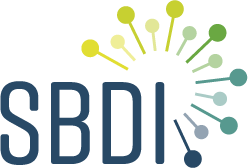Societal benefits
It is becoming increasingly clear to policy makers and society at large that biological diversity is acutely threatened by human activities. More than ever, the future of biological diversity is dependent on the ability of societies around the world to work together and take appropriate action. It is also becoming increasingly clear that our economies and the very basis of our subsistence is based on how well we manage biodiversity.
Environmental degradation, climate change and increasing pressure from agriculture, forestry, and fishing threaten the very existence of much of the planet’s biodiversity. At the same time, it is becoming increasingly clear that the health of our ecosystems, the quality of life of humans, and the very basis of our economy and our subsistence are dependent on biodiversity. Without major societal change, we will never reach the elusive goal of sustainable development.
More than ever, the fate of biodiversity and thereby the fate of the human species, is dependent on our ability to take appropriate action. But this requires knowledge about biodiversity: how is it structured, how does it function, how does it contribute to the health and resilience of ecosystems?
The knowledge gaps are astounding. We do not even know how many species we have on the planet, much less what the majority of them do and how we depend on them. Many groups of living beings, from microorganisms to fungi and invertebrates, still remain largely unknown, even in countries like Sweden.
International policy
SBDI and its users contribute an important part of the knowledge platform supporting international policy initiatives. An important mechanism is the Intergovernmental Science-Policy Platform on Biodiversity and Ecosystems (IPBES), which is inspired in part by the influential Intergovernmental Panel on Climate Change (IPCC). IPBES and its experts publish regular assessment reports based, in part, on data and research provided by the GBIF community, including SBDI. We have already seen IPBES reports influence national and EU policy, so the potential for appropriate societal change is clearly there.
The Group on Earth Observations (GEO) is another intergovernmental partnership supporting policy makers. GEO works to improve the availability, access and use of open Earth observations, including satellite imagery, remote sensing and in situ data. The goal is to impact policy and decision making in a wide range of sectors. GBIF contributes to the GEO effort through GEO BON, that is, the Group on Earth Observations Biodiversity Observation Network.
National policy
The Swedish Environmental Protection Agency (Naturvårdsverket) provides support for national policy makers. Among many other tasks, it coordinates the Swedish work under IPBES. Naturvårdsverket organizes IPBES workshops and adapts IPBES reports to Swedish conditions.
SBDI is a research infrastructure but makes its data and tools openly available to Swedish public institutions and other stakeholders providing support to local, regional and national policy makers. Some SBDI partners have a special responsibility and maintain special systems for these purposes, but we synchronize data across systems to make sure that all SBDI data are shared as efficiently as possible with these systems.
Citizen engagement and education
Much of the SBDI data is provided by citizen scientists, such as bird watchers and amateur naturalists. Open sharing of data is important for this group. Access to open biodiversity is also critical for teachers and students. And the engagement of these groups is crucial in preserving biodiversity for the future.
